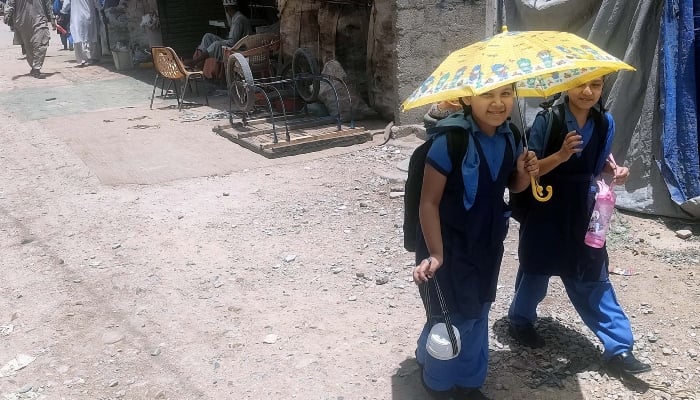Due to the high temperatures, Sindh’s summer break would be extended by two weeks, impacting over 100,000 schools, a provincial education official announced on Tuesday.
Pakistan is becoming more and more susceptible to extreme weather events brought on by climate change, such as longer and hotter monsoons and hotter heatwaves.
“We made the decision to close schools for an extra fourteen days in order to ensure the safety of the children,” an education department official for Sindh, Atif Vighio, told AFP.
The nation is experiencing frequent load-shedding, or planned power outages, as a result of a persistent problem with the supply of electricity.
While load shedding occurs in different cities around Sindh, in rural locations it can persist for over 12 hours a day, leaving schools without air conditioning.A public school teacher told AFP, requesting that her name not be published, “As a teacher, I am worried about how I will complete the curriculum, but as a mother, I am concerned about kids going to school in this heat.”
“It is the load-shedding we are worried about, not just the heat.”
According to the government, nearly 26 million children miss school as a result of poverty.
In May and June, Pakistan suffered through several heatwaves, with some areas of rural Sindh experiencing temperatures as high as 50°C (122°F).







